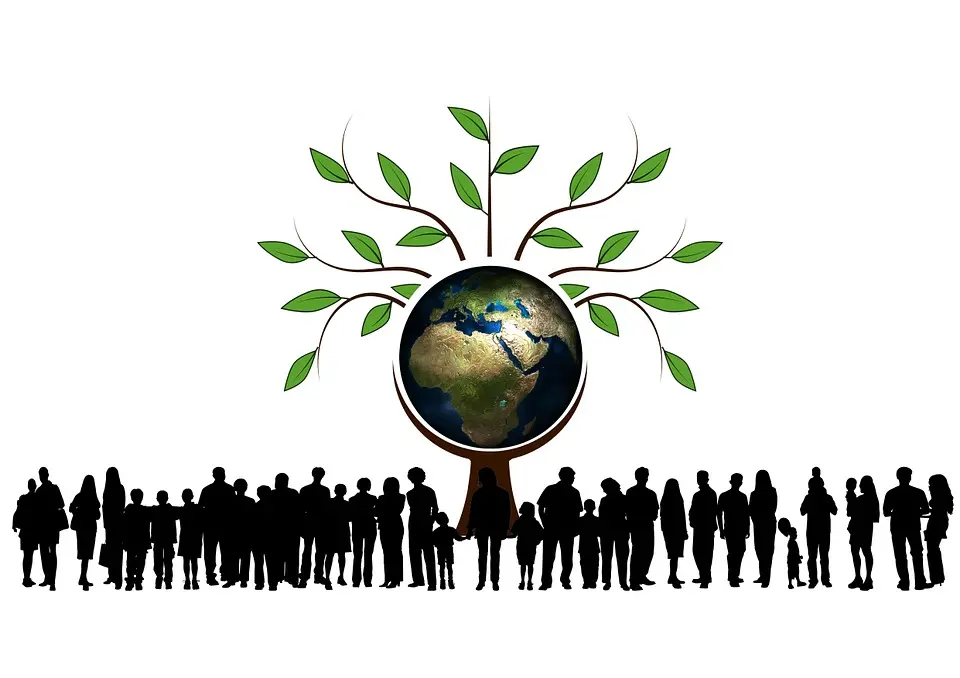World Population Day, observed annually on July 11th, serves as a reminder of the pressing issues associated with the world’s growing population. Designated by the United Nations (UN) in 1989, this day aims to raise awareness about population-related challenges and advocate for sustainable development. With an estimated global population of over 7.9 billion in 2023, World Population Day continues to highlight the need for comprehensive solutions to promote social and economic progress while safeguarding the planet’s resources.

This essay explores the significance of World Population Day, delves into the challenges it seeks to address, and examines the measures necessary to achieve a sustainable future.
Historical Background of World Population Day
To comprehend the importance of World Population Day, it is vital to understand its historical context. In 1987, the world population surpassed the landmark figure of 5 billion, prompting concerns about the implications of exponential growth. This led the UN to establish the Governing Council of the United Nations Development Programme (UNDP) to address population issues and raise awareness on a global scale. Consequently, World Population Day was instituted as an opportunity to stimulate dialogue, foster cooperation, and promote sustainable development in the face of demographic challenges.
The Global Population Challenge
Rapid Population Growth
The primary challenge addressed by World Population Day is the exponential growth of the global population. Despite declining birth rates in some regions, factors such as improved healthcare, sanitation, and increased life expectancy have contributed to an overall increase in population size. This escalating trend places strain on essential resources, including food, water, energy, and healthcare, exacerbating poverty, inequality, and environmental degradation.

Poverty and Inequality
Overpopulation exacerbates poverty and inequality, particularly in developing countries. Limited resources are stretched to their limits, making it difficult for governments to provide basic necessities, education, and healthcare to all citizens. Addressing population-related challenges requires holistic approaches that tackle poverty and inequality while fostering inclusive economic growth and social development.
Environmental Impact
World Population Day recognizes the detrimental impact of overpopulation on the environment. Expanding urbanization, deforestation, excessive energy consumption, and the release of greenhouse gases contribute to climate change, biodiversity loss, and ecological imbalance. Consequently, sustainable development strategies must prioritize environmental conservation, renewable energy adoption, and sustainable resource management.

Key Themes of World Population Day and Strategies for Achieving a Sustainable Future
Family Planning and Reproductive Health
Access to family planning services, reproductive healthcare, and education for both men and women plays a pivotal role in managing population growth. Empowering individuals with the knowledge and means to make informed decisions about family planning helps reduce unintended pregnancies, maternal and infant mortality rates, and fosters healthier societies.

Gender Equality and Women’s Empowerment
Achieving gender equality is intrinsically linked to population dynamics. Empowering women through education, economic opportunities, and reproductive rights is crucial for sustainable development. Women’s empowerment enhances their ability to make informed choices regarding family size and participate in decision-making processes, leading to improved health outcomes, reduced poverty, and enhanced social progress.
Youth and Sustainable Development
Engaging the youth in sustainable development efforts is crucial for addressing population-related challenges. Providing quality education, vocational training, and promoting youth participation in policy formulation enables them to become agents of change. Equipping young people with the necessary skills and knowledge empowers them to contribute positively to their communities, economies, and the environment.
Education and Awareness
Promoting education and awareness on population-related challenges is vital to effect change. Comprehensive reproductive health information, and awareness campaigns can help dispel myths, reduce stigmas, and enable individuals to make informed choices about family planning.
Healthcare and Access to Services
Strengthening healthcare systems, particularly in developing regions, is crucial for ensuring access to quality reproductive healthcare and family planning services. Investments in healthcare infrastructure, training healthcare professionals, and increasing the availability of contraceptives can significantly contribute to population management.
Sustainable Development Goals (SDGs)
The UN’s Sustainable Development Goals provide a roadmap for addressing population-related challenges. Integrating population dynamics into SDG frameworks can facilitate synergies between population management, poverty eradication, gender equality, environmental sustainability, and economic development.
Responsible Resource Management
Sustainable resource management practices, including renewable energy adoption, water conservation, and land preservation, are essential for mitigating the environmental impact of population growth. Implementing policies that promote circular economies, sustainable agriculture, and responsible consumption can alleviate strain on natural resources.

World Population Day serves as a global platform to address the pressing challenges associated with population growth while striving for sustainable development. By promoting family planning, gender equality, and youth empowerment, and adopting comprehensive strategies encompassing education, healthcare, and responsible resource management, we can shape a future that ensures the well-being of both current and future generations. Through collective efforts and sustained commitment, we can build a world where population growth is balanced with the Earth’s finite resources, fostering a sustainable and prosperous future for all.








































